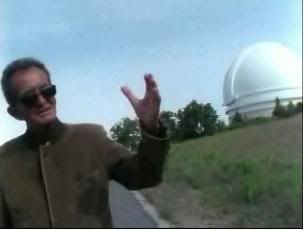"Night of the Living Radio Star"
(A Pop Culture Exercise)
1. Devo "R U Experienced" -- Hendrix's coffin, the radioactive peace sign, Devo getting "high," no decade could hate the sixties more than the eighties and no band could make "R U Experienced" sound like a job interview, except Devo.
2. Electric Six "Radio Ga Ga" -- The video for this cover supposedly divided Queen's remaining members. Yes: Dick Valentine is dancing on Freddy Mercury's grave. Boo. However: He's doing it as Freddy Mercury, leotard, fake teeth, mustache, the works. High camp* homage or vicious, sarcastic cheese? You decide.
*To get you started, here's an essay on the differences from the Hermenaut.
3. Red Hot Chili Peppers "Dani California" -- The Anthony Kiedis dressing up as Kurt Cobain part of this (frankly) dull and masturbatory piece appears to have been what enraged fans. More alarming to me, other than the slow pacing, is how empty and self-satisfied this game of dress-up is. It's like when Hanna-Barbara sells 'Warholed' Fred Flintstone images on Universal Studios souvenir T-shirts. (Being fair, some of the Beatles parts are cute and Flea 's enthusiasm is winning.) To see this kind of thing done right, watch the Gnarls Barkley "Happy Faces" video.





